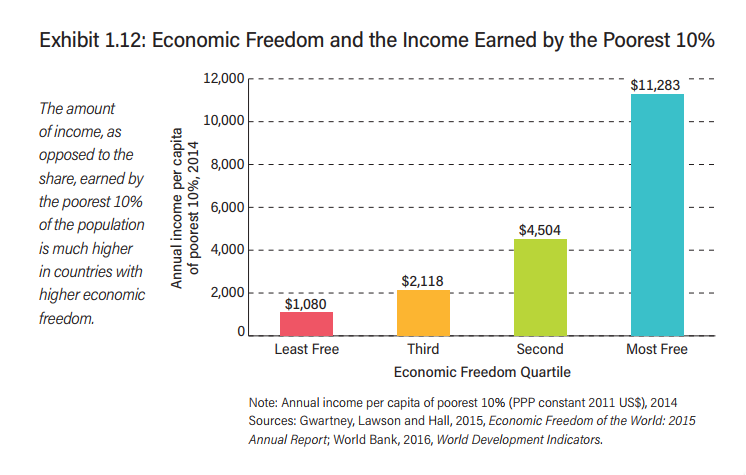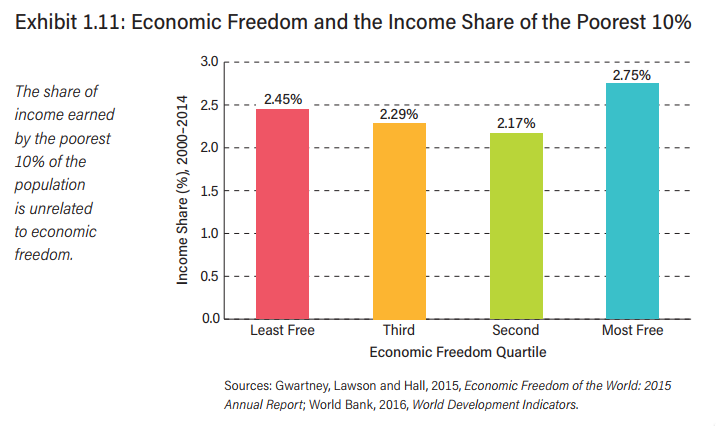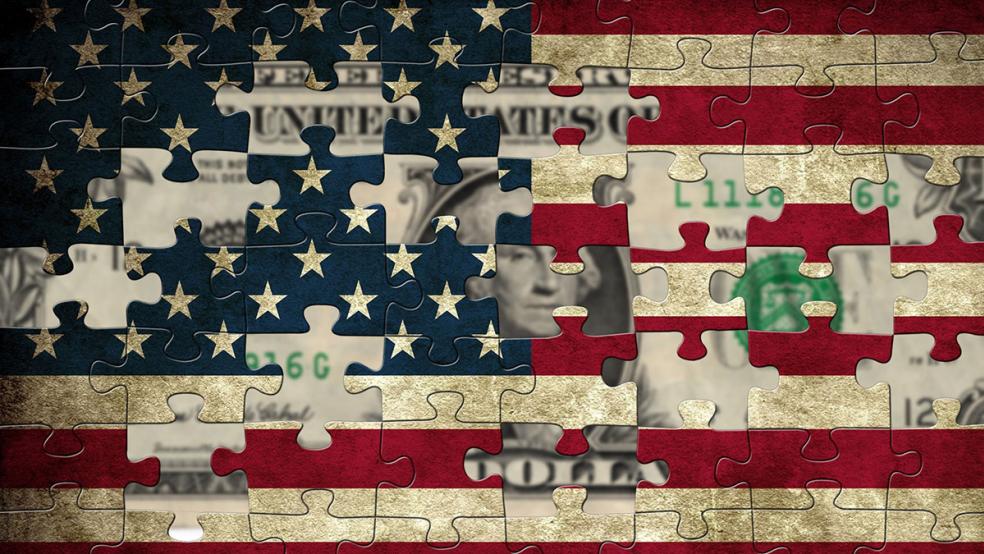The United States is the 16th freest economy in the world, according to the Libertarian Cato Institute’s annual Economic Freedom of the World report. Produced in conjunction with the Fraser Institute, the report looks at various factors, including the size of government, government regulations, rule of law, and trade and monetary policies to develop a composite score for 159 countries around the world.
On a scale of 0 to 10, the world average rose slightly to 6.85, while the US scored 7.75. Despite the fact that it puts the US in the top 10 percent of countries for freedom, as defined by CATO, the score was treated as reason for alarm in a commentary accompanying the report.
Related: Trump Could Still Win — and Stocks Aren’t Ready for Him
“The United States still ranks relatively low on economic freedom and is below Chile (13), the United Kingdom (10) and Canada (5),” writes Cato’s Ian Vasquez, noting that the top 4 countries remain Hong Kong, Singapore, New Zealand and Switzerland.
“The long-term U.S. decline beginning in 2000 is the most pronounced among major advanced economies,” Vasquez continues. “It mirrors a pattern among OECD (Organization for Economic Cooperation and Development) nations of steady increases in economic freedom in the decades leading into the 2000s, a fall in freedom especially in response to the global economic crisis, and a subsequent slight increase from the low. Neither the United States nor the average OECD country has recovered the high levels of economic freedom that they reached last decade.”

A central argument for increasing the level of economic freedom, (again, as CATO defines it) is that increases in freedom are, “unambiguously good for the poor” because they lower poverty rates, and increase the income of the poorest workers not just in absolute terms, but as a percentage of all income.
“Given that economic freedom is strongly related to prosperity and progress in the whole range of human well-being, the relatively low levels of the advanced countries are worrisome,” Vasquez writes. “Economic freedom in the top countries affects not only those nations, but exerts great impact on the global economy and human well-being around the world.”

The report finds that the income earned by the poorest 10 percent of workers in countries ranked in the top quartile of economic freedom is larger, by a factor of 10, than the income earned by the poorest 10 percent of workers in the least free countries.
Related: Trump’s Tax Plan Would Benefit the Wealthy Most, Study Finds
Similarly, the poorest workers in the freest countries earn 2.75 percent of the income share of the whole country. That is higher -- though not by much -- than the 2.45 percent earned by the poorest in the least free countries.
The data in this report is based on year-end data for 2014, the most recent available. An interactive map created by Cato is available here.





